#Japanese lessons
Note
Does duolingo japanese teach the alphabets too
Yes! They have a separate page where you can practice Hiragana and Katakana!! They run you through writing them and everything!
I do wish that they had another page that was sort of like a bank of all the Kanji you've learned so far, so you can practice recognizing and writing those? More speaking lessons would be helpful too!
13 notes
·
View notes
Text
【Basic Japanese Words for Beginners】Learn Japanese words with katakana へ (ひらがな「へ」のたんご)
#単語#単語を学ぼう#Japanese word practice#日本語の練習#Katakana#日本語#日本語能力試験#日本語レッスン#外国人技能実習生#Japanese#japanese language#learn japanese#study japanese#study languages#online japanese#japanese teacher#japanese words#japanese lessons#japanese#jlpt
18 notes
·
View notes
Text
youtube
1 note
·
View note
Text




learning japanese update: i’ve been practicing writing down sentences and trying to understand the sentence structure. linguistically, japanese and turkish have similarities, so i can say that it’s been going well and i’m having sooo much fun!!
#langblr#lunlunstudies#learning japanese#japanese learning#language lessons#second language#japanese language#language learning#language#langblog#studying#studyblr#studyspo#studystudystudy#study motivation
407 notes
·
View notes
Text
increasingly "useless" reasons why i like learning languages
@studentbyday said i should re-define "useless" in my mind. instructions unclear. made a shitpost instead 💩



💌: inside-my-phone format is back!🍃 do you agree/disagree with my MTL rankings? what motivates you? 👀
i can be a more empathetic, understanding, and supportive person who makes sure to only cuss people out in languages they don't understand so that their feelings aren't hurt ❤️
i can talk to more people who will probably think i'm an idiot because of how badly i speak their language 👄
i can nurture my self-confidence/-esteem as long as i don't think too hard about how much i don't know 🥰
i can read more books, articles, people arguing on the internet, etc. 📚
i can travel to foreign countries more easily until someone asks me to translate something important and i mess up and land us both in prison or something ✈️
i can unlock new work opportunities until someone asks me to translate something important and i mess up and land us both in prison or something 💼
i can multitask better even though i shouldn't even be doing it in the first place 🤹♀️
i can watch my favorite shows/listen to my favorite songs without subtitles/translations so that my brain rot can continue in peace 📺
i can, on the other hand, stop losing brain cells?? 🧠
i can eavesdrop on more people, probably at the grocery store 🙉
i can show off at work and other places where it is appropriate to show off irrelevant skills ✨
sex appeal?? 🥵
#langblr#studyblr#study motivation#study inspiration#korean langblr#chinese langblr#japanese langblr#korean studyblr#chinese studyblr#japanese studyblr#learning languages#language learning#language lessons#duolingo#zesty's life#languages#multilingual#multilanguage#bilingual#motivation#humor#shitpost#self development#self improvement#study blog#study aesthetic#light academia#dark academia#chaotic academia#polyglot
290 notes
·
View notes
Photo

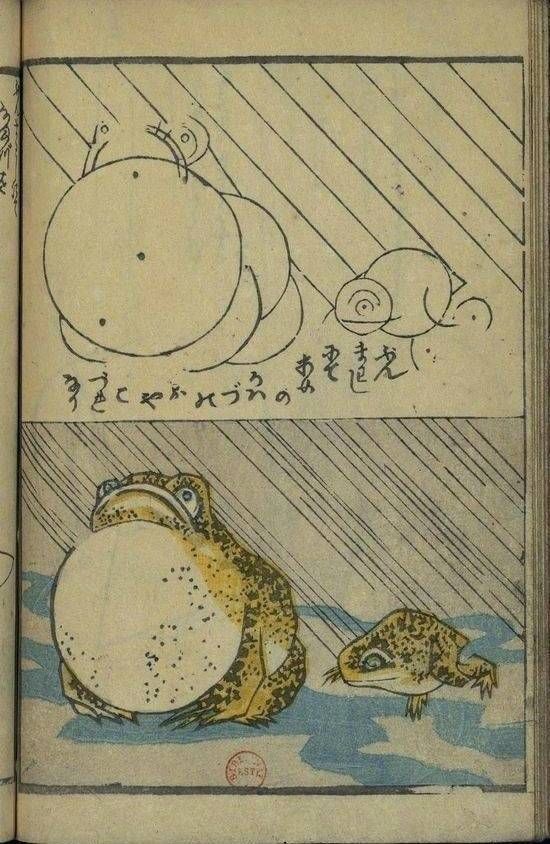
Katsushika Hokusai
Edo period
1K notes
·
View notes
Text
I don't know if anyone else has noticed, but...
(left is from 38-17 from the og game and right is from 12-2 in Nightbringer)












I just think it's funny how similar they are
Edit: the Japanese version is also very interesting 👀
#i was replaying lesson 12 in japanese and thought 'wait this sounds familiar'#obey me#obey me michael#mel's starry musings
494 notes
·
View notes
Text

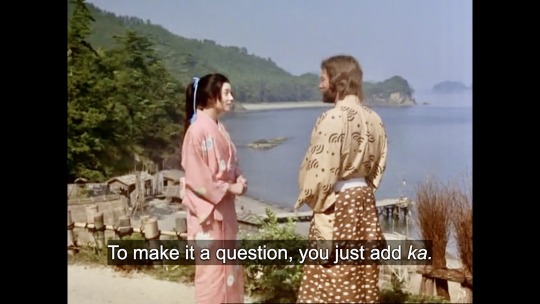
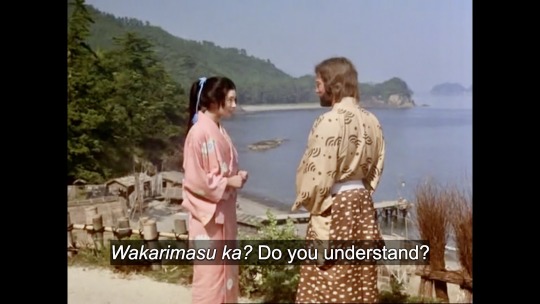
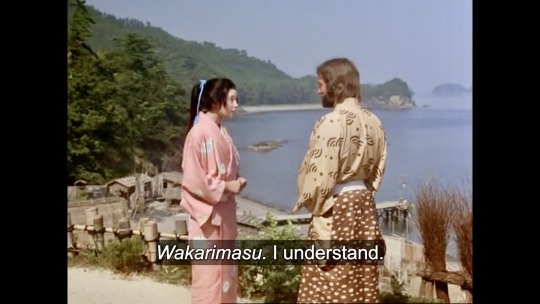
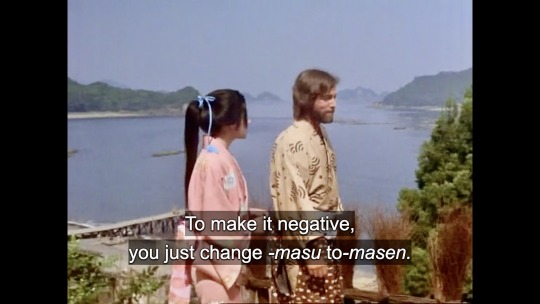
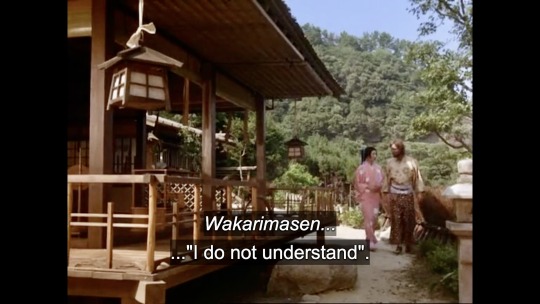
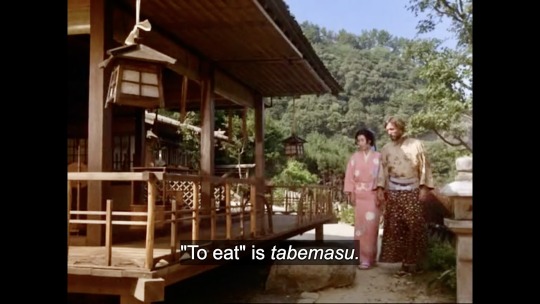
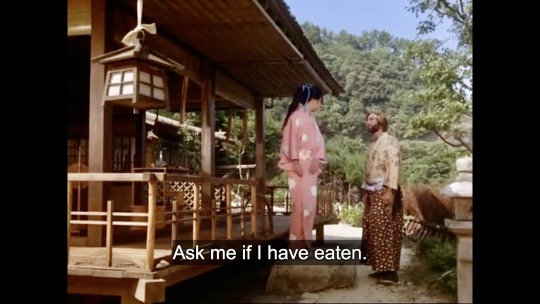
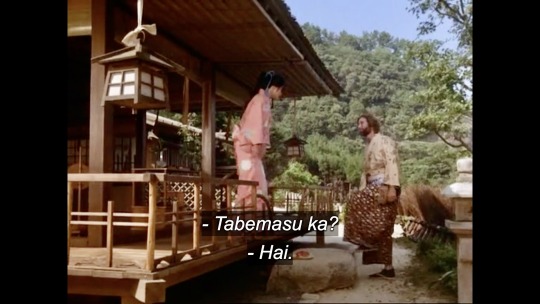

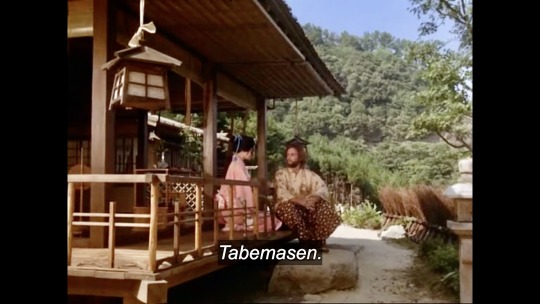
Shogun (1980)
Learning Japanese by the seaside with a pretty teacher. Sign me up. 😆
#shogun#shogun 1980#richard chamberlain#yoko shimada#japan#japanese language#learn japanese#japanese lesson
294 notes
·
View notes
Text
Shōgun Historical Shallow-Dive: Part 1
Does everybody else's heart hurt? Good! Let's get learning. These characters and the people that inspired them all deserve their own post, but here's a quick one if you're wondering what happened. This is a shallow-dive because the history is extremely complicated, and a condensed version of just the events leading up to Sekigahara (the battle depicted in the finale) take up entire volumes of history. I'll do my best to answer questions about what happened to our three protagonists, in the show, as well as real life 🙇
One note: given I'm not a professional historian, I've got no obligation to not have biases and favourites. I've tried to keep most of them out of this, but if you want to punish yourself by trying to keep track of who's who in the Azuchi-Momoyama period, this book is the best English-language overview.
What happened to Toranaga (Tokugawa Ieyasu)?
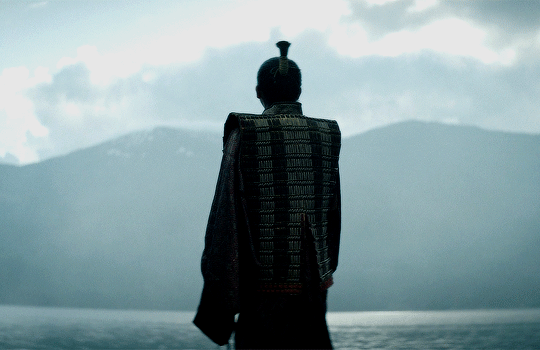
Gif: @yocalio
I am not as strong as I might be, but I have long known and practiced patience. And if my descendants wish to be as I am, they must study patience. - from The Legacy of Ieyasu Tokugawa
In the book, Toranaga reveals that it had been his aspiration to be Shōgun from the very beginning. That was what drove his alliance with the Taiko, that was what drove his feigned alliance with the Heir.
History follows a very similar path. I re-read some chapters on the battle of Sekigahara last night, and there is no easy way to explain it, but: the result of Sekigahara (an enormous, two-day battle with 200,000 samurai and ashigaru warriors in the field) was an enormous victory for Tokugawa, Toranaga's real-life counterpart.
Years - sometimes decades - of scheming by Tokugawa had made Ishido/Ishida's Western Alliance completely fragmented. In the months leading up to the period displayed in the show, Toranaga was calling in a lifetime of marriage alliances, diplomatic advantage, defensive pacts and childhood friends who'd risen to high status. Re-reading the sources, the names of all the lords of all the important fiefs and castles makes my head spin, let alone the ones that turned out to be pivotal to Toranga/Tokugawa's victory. But it was a resounding victory, and by both the numbers and the disposition of forces, he should have lost.
Historians have a consensus that if the 'Western forces' of the Heir had have fought together with a unified command structure, they would have won, easily. But they didn't - orders from Ishido/Ishida were ignored, Toranaga/Tokugawa endured onslaughts, and the Regents' opposing armies eventually fractured and melted away. This was a last-of-an-era battle. Families were fighting on either side, every single unit that could be brought to bear was on the field. It is no exaggeration to say Sekigahara is one of the few, unambiguous battles upon which the beginning of a historical era came down to.
Toranaga/Tokugawa triumphed because he spent decades building unity of purpose and strong alliances, simultaneously sowing division amongst the Regents, who ultimately balked at being commanded by a bureaucrat like Ishido/Ishida. Whilst there was no one decisive moment of an extremely bloody, rainy, two-day battle, the fact that Ishido/Ishida's forces refused to be told what to do by someone of lower status was the main theme of their defeat. A crucial army stationed on the hill stayed still, refusing to commit to either side, until Toranaga/Tokugawa fired muskets into their ranks. They made up their mind, and attacked Ishido/Ishida's Western army. Ishido/Ishida's one trick of firing a flare to commit the reserve army didn't work. The commander ignored it. Instead of being there to fight for something, Ishido/Ishida's coalition was there to oppose someone. They all had different reasons. And ultimately, the man that brought them together didn't command enough respect to command a battle.
As our show Toranaga said, the Regents fell upon each other. He might have been a bit optimistic about how and why this would happen (they fell over each other in retreat, and it took two days of horrific combat), but it happened. Tokugawa Ieyasu was famous for richly rewarding former enemies, and most of those he defeated kept their heads. This reputation is a strong incentive for leaving the field when things start going Tokugawa's way.
The two exceptions were Ishido/Ishida, and Kiyama/Konishi, both beheaded in Osaka (Ishido, bizarrely, was upbeat about his fate, until seconds before the sword came down). Killing Ishida was the obvious move, as the man schemed and bitched so much he caused a civil war. Killing Konishi was more calculated - it opened up his trade-hub in Kyushu to being ruled by a fervent Buddhist daimyo and ally of Tokugawa.
Toranaga/Tokugawa forces soon captured Osaka Castle after the battle of Sekigahara, and with it, the Heir.
Toranaga/Tokugawa 'reluctantly' accepted the Imperial appointment of Shōgun three years later, in 1603. In 1605, he abidcated, passing the title to his most malleable and competent son, Hidetada. He was the real power behind the throne and ruled until his death in 1616.
The year before he died, he was able to fully secure his legacy. The Heir (in real life, Toyotomi Hideyori) had begun to gather daimyo to Osaka castle who were opposed to Tokugawa. Tokugawa used the flimsiest of pretexts - the opening of a shrine - to order the Heir out of the castle. He refused, Tokugawa forces besieged the castle - twice. The first one was called off because cannon fire nearly killed Ochiba no kata, and she pushed her son to sue for peace. By the second siege, there would be no peace: the Tokugawa forces defeated all oppoosition, and secured the legacy.
Toranaga/Tokugawa's descendants would rule for 250 years of internal peace and external lock-down of the country from barbarians (and Christians), except for limited trade.
The big question: did Toranaga/Tokugawa really want to be Shōgun from the start? History tells us, rather unambiguously, yes - before the campaign, he was writing his 100 Articles for ruling Japan, which would be instrumental for his family holding on to power and preventing internal strife. His plan may well have gone back to his formative, teenage years. At the very least, it is highly likely it was solidified when Toranaga/Tokugawa was a vassal of the Dictator Koroda/Oda Nobunaga - the man Mariko/Hosokawa Gracia's father assassinated, who was brutal even by the standards of the day. We don't have time for him, the Taiko, and Mariko's father today - but my opinion is that the motherfucker firmly deserved to be assassinated, and the only amazing thing is that the inspiration for Mariko's father was able to hold off for so long.
But that killing set off a chain of events that would lead to Toranaga/Tokugawa becoming sole ruler of a unified Japan. So much of history is contingent on individual actors and random events. It didn't have to happen. It was extremely unlikely. But, through patience (and by my reckoning, a lot of luck), he made the world he wanted to see. Whether that was worth the price in lives is for the reader to decide.
But by all accounts, Toranaga/Tokugawa died very satisfied in the knowledge that his legacy was secure, his realm was unified, and, finally, at peace.
What happened to Mariko (Hosokowa Gracia)?
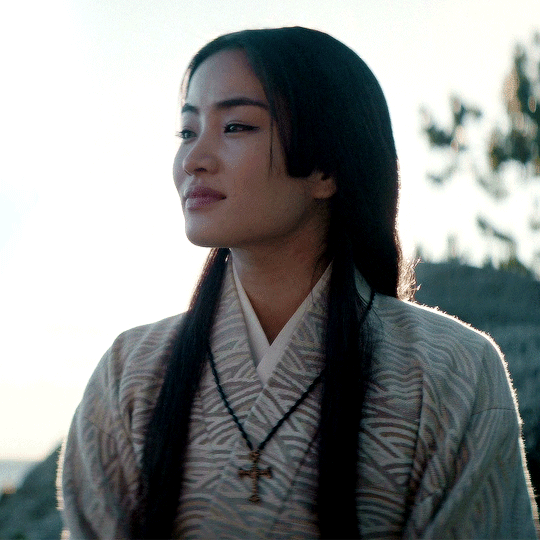
Gif: @yocalio
As is probably obvious, Mariko's purpose was fulfilled before the conclusion of the show. As is also probably obvious, her historical counterpart - Hosokowa Gracia - did not have an affair with an English sea pilot (😢). She did, however, change Japanese history, and tipped the balance of noble support towards Toranaga/Tokugawa. Her death had meaning.
The framing of her marriage to Buntaro and exile after her father's successful assassination of a brutal dictator is almost exactly correct. She was one of the most desirable, valued and accomplished young noblewomen of the day. The stain of the name Akechi would haunt her for the rest of her life. Real life Buntaro, Hosokowa Tadaoki, genuinely sent her away for two years to save her life. The Hosokowa family even went so far as to pretend that she had died, to save her from the Taiko's vengeance. Whilst her marriage was an unhappy one (though not, as far as is known, abusive), she was beloved by the head of the Hosokowa clan, the show's Hiromatsu. They went to extraordinary lengths to keep her safe.
Her main comfort in her life was her faith. It's perhaps here that we get the strongest through-line from Hosokowa Gracia to Mariko - unafraid, intelligent, and fierce.
She first came to learn about Christianity from her Christian maid, who extolled the virtue of the faith, and the opportunities for intellectual stimulation theological discussion could bring. In 1587 (five years after her father assassinated the dictator, three years after she returned from exile), she decided to take action on it. She snuck out of Osaka Castle and visited the main church in Osaka - she had lively conversations with the elderly Father-Visitor, and was an excellent pupil of both Portuguese and Latin theological texts. I don't know if you guys have ever tried to read those things, but even in translation, they are torturous. This woman was extremely intelligent.
As a noble woman of the Taiko's court, she knew he was about to issue an edict outlawing Christianity. Being the (excuse the language) absolute fucking badass that she was, she had her maid (baptismal name Maria) baptise her before the edict was issued, transforming from Hosokowa Tama to Hosokowa Gracia. Even though she had to keep her faith a secret due to the Taiko's edict, she found a way to hold on to it. She had a special sake cup made with the Hosokowa mon emblazed on the lip, which, on very close inspection, was actually a Christian cross.
During this time of her religious conversion and education, a primary source from a Jesuit priest says that 'I have never disputed with a woman of such clear judgement, and such definite knowledge.' She was known for being fiercely intelligent, and this is commented on in many European letters and journals that have remained from the Catholic church's time in Japan.
Her relationship with her husband - like Buntaro, a senior retainer of Toranaga/Tokugawa - was frosty. They never reconciled after her father's (Akechi Mitsuhide) rebellion, but her husband did recall her from exile when it was safe to do so, and she lived to serve a very similar purpose to Mariko in the book and show. By virtue of not being an interpreter, she was less close to Toranaga/Tokugawa than in the book and show, but she was still dedicated to her clan and her clan's overlord, as will become clear.
Just as in the show, Hosokowa Gracia agonized at the thought of seppuku putting her soul in mortal danger. But she perceived her duty to be to ensure death before being captured or otherwise dishonoured.
To put it bluntly, Ishido (Ishida in real life) fucked up. Before any military manouvers had begun, he went to seize hostages of friends and enemies alike throughout Osaka castle. His forces tried to forcibly seize Hosokowa Gracia from the family quarters. She gave orders for her senior retainer to kill her, her daughter, and set fire to their section of Osaka Castle, so that none could be taken and subjected to dishonour. She arranged with this samurai to stand on one side of a shoji screen, facing him. He stabbed her through the heart with a naginata. She died, satisfied in the knowledge that:
...the death was not suicide, and her soul would doubtless be spared from the torments of Hell.
Although not doing this directly on the orders of Toranaga/Tokugawa, it's highly likely she knew that she was making a statement (many of the other hostages went quietly). This furthered his cause immensely. Inspired by Hosokowa Gracia, families streamed out of Osaka Castle and other Regent-held castles by any method they could. Her example ignited a firestorm of controversy surrounding the gall of a jumped-up bureaucrat (a reputation Ishido/Ishida would never escape) forcing the death of one of the era's pre-eminent noblewomen. Although her husband was relatively unbothered by her death, her father-in-law - the book/show's Hiromatsu - was furious. Because of Hosokowa Gracia and his granddaughter's death, he immediately fortified his border castle.
He defied a large [Ishido/Ishida] army of 15,000 men with only 500 men of his own.
Many of [Ishido/Ishida's] commanders held [Hosokowa Fujitaka/Hiromatsu] in such high regard that they went through the bare motions of laying siege. On a regular basis, gunners 'accidentally' forgot to load their cannon with iron shot, and so Tanabe Castle's walls reverberated daily to the harmless booming of blank gundpowder explosions. [Ishido/Ishida's] military offensive had launched to a disastrous start.
The siege only ended because of an imperial decree (it's a long story - Fujitaka/Hiromatsu knew an oral tradition special imperial poem that risked dying with him, nobody could refuse the Emperor). More than this, any chance Ishido/Ishida had of convincing skilled and respected generals to commit to his side ended with Fujitaka/Hiromatsu's defiance. Such was the respect that he commanded, and such was the rage he felt at the death of his daughter-in-law, that he worked tirelessly to gather support for Toranaga/Tokugawa, despite his advanced years.
Mariko/Hosokowa Gracia's contribution was an inflection point to what many samurai, busho and daimyo were suspecting - that Ishido/Ishida was a snake bitch who couldn't be trusted (I believe that's the correct historical term). Her actions galvanized resistance against him, and continued to spread the wildfire that would seal his defeat on the battlefield of Sekigahara: 'Why are we taking orders from him?'
Importantly, Hosokowa Gracia's remains were gathered by a Catholic priest, and given a Christian burial in Osaka. From everything we know of her, this would have been very meaningful indeed. Just as with Mariko in the show's depiction, Hosokowa Gracia's death was not senseless or without meaning. It meant something, and continues to resonate through the centuries.
What happened to John Blackthorne (William Adams)?

Gif by @cinematic-gif-archive
The short answer: imagine an alien landed in America. It was smart enough to avoid death. It ended up chief special advisor to Obama, and they became bros. That is William Adams's life.
First things first: Blackthorne stays in Japan. 'Old Rich Blackthorne' scenes are basically fever dreams. I was worried when the episode opened with a flash-forward to an old man living in Tudor comfort. This would be a huge change from both the book, and history. The novel ends with Toranaga confirming that his plan is for Blackthorne to never leave Japan. Blackthorne finds his place there. In history, the same is true of William Adams.
In episode 10, the 'is this a flash-forward?/is this a dream?' question is answered halfway through the episode. Blackthorne drops Mariko's cross over the side with Fuji's family ashes. As soon as that's done, the aged visions of Blackthorne disappear.
For those who are more textual than visual: the episode is titled A Dream of a Dream (a play on the title of the Taiko's death poem). Concussed, grief-stricken Blackthorne is dreaming of the dream he used to have - returning to England with riches and glory, his family name secure, with every comfort Queen Elizabeth the First can offer a pirate-explorer like Sir Francis Drake or Sir Walter Raleigh. But as soon as he lets go of Mariko's cross into the water (earlier, actually, when he sincerely attempted seppuku to try and save the people of Ajiro) that dream stopped appearing. The dream he had of exploiting Japan for riches and glory was gone, replaced with the reality of the life he is left to build.
In the show and the book, Toranaga is explicit about never letting Anjin-sama/Blackthorne leave Japan. If he builds new ships, Toranaga will burn them again. He needs Blackthorne's knowledge, expertise, and - in a bizarre twist of fate - friendship. We leave him hauling his wreck from the harbour, ready to salvage the keel and spars, to build a new ship in Japan.
So how does this marry up with history? Extremely accurately. As far as we know, the historical William Adams was slightly less of a pirate/privateer than the book/show's John Blackthorne. His hatred of Catholicism was more driven by their fervent desire to kill him, which they kept up for nearly a decade. His interest in exploration, in the show and in the historical, was genuine.
The show's story very closely follows what actually happened in real life (again, sans romance... although he does have love in his life, which we'll get to). His crew were initially imprisoned, he was summoned by Toranaga/Tokugawa, and met with him many times to discuss his knowledge of the outside world, trade, and Christianity's impact in Asia. The Jesuits did pester the Council of Regents, and Toranaga/Tokugawa in particular, to execute him. Toranaga/Tokugawa refused, saying this barbarian had done nothing to harm Japan or its people. The Jesuits would not forget this.
He did train elements of Toranaga/Tokogawa's army in how to work the cannon his ship possessed - a skill he possessed, but no one else was willing to offer. He actually followed Toranaga/Tokugawa to several battles. Recent primary source evidence has revealed it was highly likely he was actually at the Battle of Sekigahara, which is a very recent development in the historiography of his life. It is just bananas insane, but it demonstrates just how useful (and likeable) Blackthorne/Adams was to Toranaga/Tokugawa.
I've read two biographies of William Adams, and he was very, very like the Blackthorne portrayed by Cosmo Jarvis. Other Europeans in Japan complained that he was arrogant and dismissive - historians see this as Adams adapting to his station in Japanese society, and being extremely frustrated with European manners and bearing in Japan.
Once Toranaga/Tokugawa became shōgun, Adams - already a samurai - was made hatamoto, and forbidden from leaving Japan. He was granted many generous cuckoos (250 of them!), an estate in Edo, a fief at the entrance to Edo bay, and rose to become Toranaga/Tokugawa's chief trade advisor. During Toranaga/Tokugawa's remaining life, he built two Western-style ships (which Tokugawa came aboard and was very pleased with - that's nice!), and took over piloting duties of Portuguese and Spanish ships making landfall in Edo, pissing off the Catholics to no end.
On Ieyasu Tokugawa's death in 1616, his holdings and fief were confirmed by the new shōgun, Ieyasu Hidetada. But his relationship with the court wouldn't be the same. My reading of the sources leads me to believe that James Clavell was right here: Toranaga/Tokugawa Ieyasu genuinely liked Blackthorne/William Adams, and wanted him around.
As more and more Europeans arrived in Japan, including the English and the Dutch, Adams served as translator for them, and - for the Enlgish - fixer whenever they did something barbaric and rude that would warrant execution. He seemed to view spending time with the (no joke) drunken, whoring, disgusting-smelling English trading factory members as an extreme annoyance. He seemed happiest at sea, and at his mansion in Edo, where he married the daughter of a merchant in 1613. Whilst her name is lost to the historical record, they had two children, Joseph and Susanna.
He wasn't a deadbeat dad - he wrote to his wife back in England, explaining that he could not return. She was a firebrand, and eventually extracted a form of life insurance from the Dutch company that had contracted Adams's piloting services. Partly she was able to do this because of a proclamation issued by Toranaga/Ieyasu Tokugawa: 'William Adams was dead the day he was made samurai, and Miura Anjin - the pilot of the fief of Miura - was born.' That sounds like a badass quote I've made up, but that's one of the English translations of Tokugawa's proclamation.
Adams kept up his maritime adventures, charting the Japanese coast, going on several trading missions to Southeast Asia (sailing to Thailand and meeting with the King of Siam, furthering his amazing ability to charm and dazzle). He struck up firm friendships with members of Tokugawa's court, fellow Japanese merchants in Edo, and the much more polite Dutch traders, despite the tensions that had grown between their two countries.
There's an important aspect of his legacy that endured for centuries. Toranaga/Tokugawa, suspicious of what he had learned of Catholic conversion and invasion of other Asian states, was already disposed to be wary of the Church. The Church in Japan would not let Adams rest, attempting to kill him, convert him, bribe him, and offer him passage home in 1614 on a Portuguese ship. In the same year Portuguese priests claimed that only Spanish miners had the skills to open up the mineral wealth of Japan. Adams warned the shōgun, again, that this was the Catholic way - first the priests, then the conquistadores.
Influenced by these reports and counsel, and because the Jesuits legitimately were conspiring to do the shit Adams accused them of (always a tough charge to defend), Toranaga/Tokugawa Ieyasu expelled all Portuguese priests in 1614, and demanded all Japanese Christians recant. Apart from this leading to the Dutch being the only nation allowed to conduct trade with Japan, this was the end of Japanese Christianity, until the country was forced open in 1855. Christianity never took root in the same way it would in places like Brazil and the Philippines. Was William Adams the only factor in this development? No. Was he a factor? Yes.
He died in 1620, after twenty contented years in Japan and Asia. His will stipulated that his estates and belongings be split evenly between his family in England and Japan. One of Adams's colleagues recorded that Ieyasu Hidetada transferred lordship of Adams's fief to his Japanese son, Joseph, as well as his katana and wakizashi. His line fell out of the historical record, but memory of and monuments to the Anjin remain in Japan.
Faring Well
Shōgun, the book, was fiction, written by a man fascinated by Japanese history, driven by a desire to bring it to the world. He was overwhelmingly successful. It was an excellent start, and even fired up some fascinating academic discussion at the time that I'd definitely recommend. The 2024 adaptation, in my view, changes many of the elements that have aged poorly, were flat-out wrong to begin with, and - like all great adaptations - adds to the work, rather than cheapening it.
Despite being based on real people, the fictional characters created for the show - Blackthorne, Toranga, and especially Mariko - feel real. That is an amazing achievement.
I hope this opens up an interest in Japanese history for some viewers. Being able to visit the places where these events took place is a truly awesome experience. Like all history, it's for individuals to judge what they think of the players.
Hiroyuki Sanada said that he admires Tokugawa Ieyasu because of his ability to bring forth 250 years of peace out of nearly 500 years of chaos. Was Ieyasu motivated by altruism, or self-interest? Does it even matter?
Anna Sawai saw in Hosokowa Gracia a moving, powerful woman, deeply committed to her faith, and to doing what she believed was right in the context of her time. As a person without faith myself, I found this portrayal of genuine belief extremely moving. The demonstration of her convictions was one of the most amazing performances I've ever seen.
And as for the English pilot, Cosmo Jarvis said he wanted to capture the restlessness of Adams, his slow transformation and growth, and the unique qualities that allowed the man to survive and thrive in an extremely deadly time. One thing he nailed that I think even James Clavell messed up was how deepy strange William Adams was. Not weird, not insane, but just a very singular individual. Biographers talk about his aloof, detached, self-aware nature being misconstrued as arrogance by Europeans who encountered him in Japan. Part of it was his annoyance at their inability to learn how to be in Japan; part of it was that he was simply built very differently. In embodying this, I think Cosmo Jarvis succeeded amazingly.
From what we can find in the historical record, William Adams and Hosokowa Gracia may not be 'great' in the sense that Tokugawa Ieyasu was 'great'. They did not build an era. To borrow a phrase from one of my favourite historical writers, whilst they may not be 'great' people, they were good people. That is vanishingly rare in the history we celebrate, and I think, for that reason alone, it's important to remember them, and the things they lived and died for.
#shōgun#shogun#shogun fx#anna sawai#cosmo jarvis#toda mariko#john blackthorne#anjin#adaptationsdaily#perioddramasource#hiroyuki sanada#yoshii toranaga#akechi mariko#history#history lesson#japan#japanese culture#tokugawa ieyasu#hosokowa gracia#william adams
64 notes
·
View notes
Text

Monthly challenge done 💪🏻
4 notes
·
View notes
Text
【Basic Japanese Words for Beginners】Learn Japanese words with katakana フ (ひらがな「フ」のたんご)
#単語#単語を学ぼう#Japanese word practice#日本語の練習#Katakana#日本語#日本語能力試験#日本語レッスン#外国人技能実習生#Japanese#japanese language#learn japanese#study japanese#study languages#online japanese#japanese teacher#japanese words#japanese lessons#japanese#jlpt
15 notes
·
View notes
Text
youtube
0 notes
Text
[Japanese→English] @panmaumau Tweet — Color Coded Translation

————————————————————————
何も知らない生き物の顔
なにもしらないいきもののかお
The face of a living thing that doesn’t know anything.
————————————————————————
Please correct me if I made a mistake
#color coded translation#japanese#japanese vocabulary#study japanese#japanese lesson#easy japanese#beginner Japanese#learning japanese#japanese lingblr#japanese linguistics#learn japanese#japanese langblr#japanese learning#japanese language#japanese vocab
79 notes
·
View notes
Text
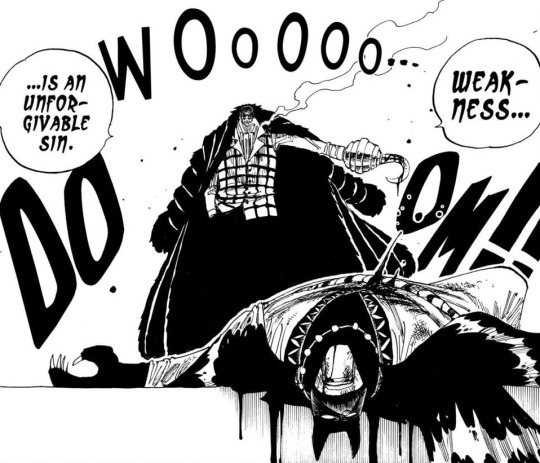
If being weak is a "sin" in Crocodile's mind, then isn't a painful defeat and maybe even death rightful punishment for it? A punishment you deserve for your crime of "being weak"? That's an intriguing mindset from him because it makes me wonder how Crocodile might view his own past and the things he has gone through?
I might not go as far as to say Crocodile "blames himself" for the things he's gone through, as he doesn't seem like the kind of guy who dwells on the past like that. But I do feel like Crocodile has accepted in his mind that things like losing his hand happened because he was weak, and it was his own fault. That he can not blame anyone else for what has happened to him. He fucked around and he found out.
It's just interesting because to some degree, One Piece thematically does agree with this sentiment, this is a world where the strong eat the weak. (One example at the top of my head; Luffy refusing Katakuri's apology when his sister intervened with their battle, saying he should've dodged the attack properly if he didn't want to get hit.) Chaka falling in this scene and being unable to stop Crocodile may lead to the deaths of so many more, including his loved ones, and if that comes to pass, it's is Chaka's own fault. For being too weak.
But also Crocodile has twisted that idea; Crocodile is using his worldview here to justify himself and essentially saying he can do this (take over Alabasta and kill a million innocents doing so) and get away with it because he's powerful. When in reality "weakness is a sin" isn't about the survival of the fittest, but how this is a world where the strong are meant to protect the weak. (See: Luffy) (Also how Pell told Baby Vivi in that flashback about how he trains so he can protect the Royal Family; again, he he craves power not to oppress the weak but to protect them)
But, just to get back to Crocodile again, I feel like this worldview might also give us more insight as to how he acts in certain situations post-Alabasta.
Like when we see Crocodile towards the end of Miss Goldenweek's cover story, both when he declines to escape from jail and in his Impel Down mugshot, Crocodile has a smile on his face. That really is the face of a man who has accepted his fate, is it not?
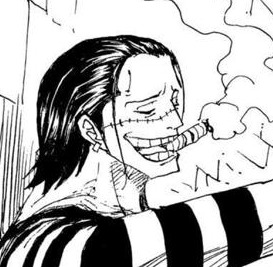
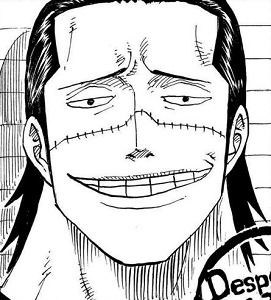
"Welp, this is what I get for losing to a child in flipflops"
Or when we see him come collect his debt from Buggy; Crocodile seemed quite relaxed and fully admitted he had assumed Buggy would've ran away before he even got there to collect his money. Of course, considdering his trust issues Crocodile would've been mentally prepared for Buggy skedaddling anyways, but the fact that he loaned the clown money to begin with while assuming he'd probably never get that money back-- like Crocodile knew that was going to happen and he just accepted it. And just rolled with it.
Of course, when things take an Unpleasant, Unexpected Turn, he will blow a fuse. Multiple, even.
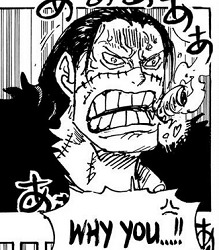
Him angy
IDK man this is all just interesting to me
#Moon posting#OP Meta#Sir Crocodile#No I did not really have a proper thesis for this post#More just that like. IDK although I talk about Crocodile probably having a whole lot of Unresolved Trauma#I don't mean that in a ''he cries himself to sleep every night'' kinda way (doesn't seem like something he'd do anyways)#More in a ''shit changed the way he views the world forever in a negative way'' kinda way#Does that make sense? IDK#But yeah he does seem like he accepts what he has gone through and has moved on from it (taking 'important lessons' with him)#Sidenote I did check what he says in Japanese in this scene and the ''unforgivable'' was added by Viz here. Good localization#Also that does tie in nicely to how Crocodile always seems to have backup plans for his backup plans#How he seems to considder every potential thing that could go wrong and tries to account for them.
52 notes
·
View notes
Text


so… i have been learning japanese!!! my german course will start in a couple of months and i’m excited to keep learning it, however learning japanese is in my 2024 goals :] since i started japanese dramas, i’ve been interested in the language. for now i am just learning from and practicing on duolingo. i’m looking for (and have found) some free online books and i’m gonna start studying using them as well. i don’t know why but it brings me so much joy when i remember words or build sentences with what i know. i really hope i can improve my japanese :]
#studying#studyblr#studyspo#studystudystudy#study motivation#study blog#studygram#student#studyinspo#lunlunstudies#language lessons#second language#language learning#language#japanese language#japanese langblr#japanese learning#langblr
141 notes
·
View notes
Text
This time Together with Maman as school teachers
Caption "Teachers for subjects you're not good at"
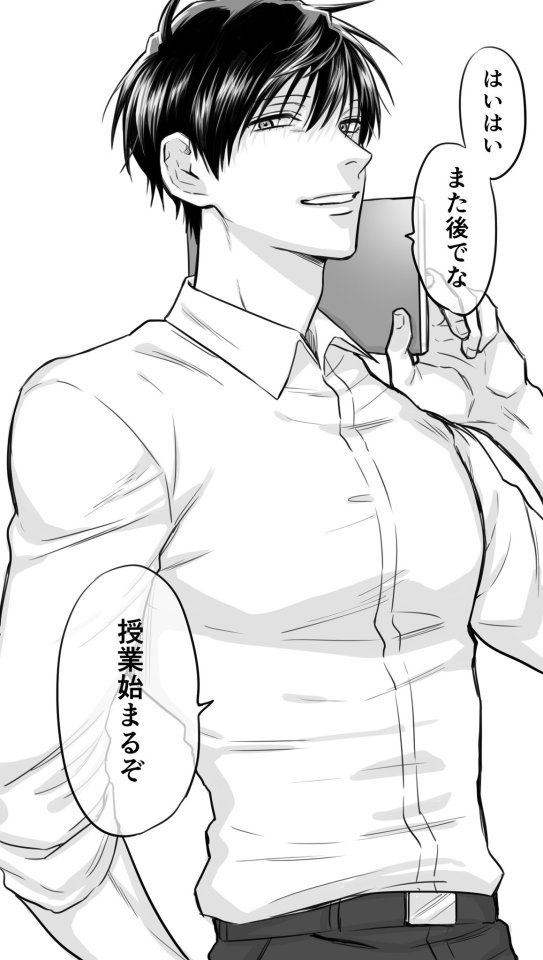
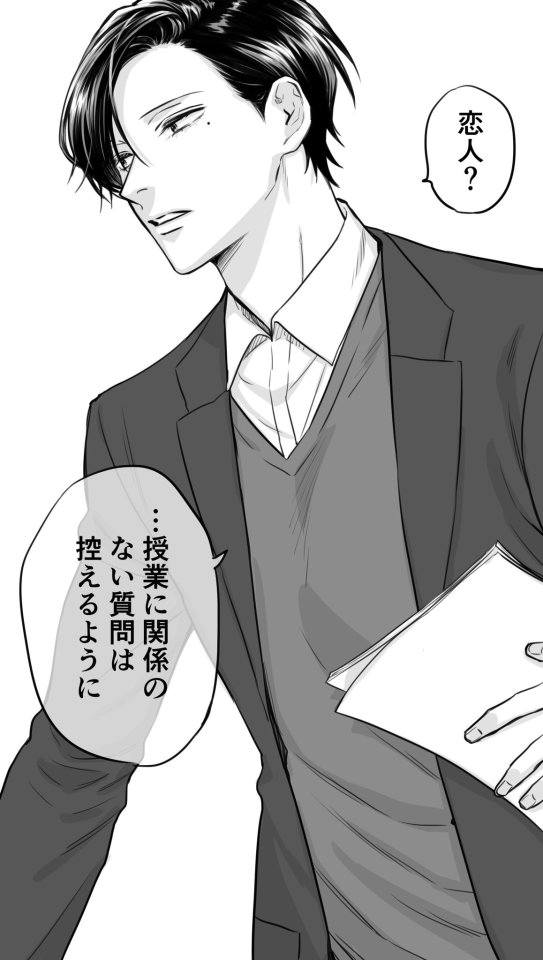
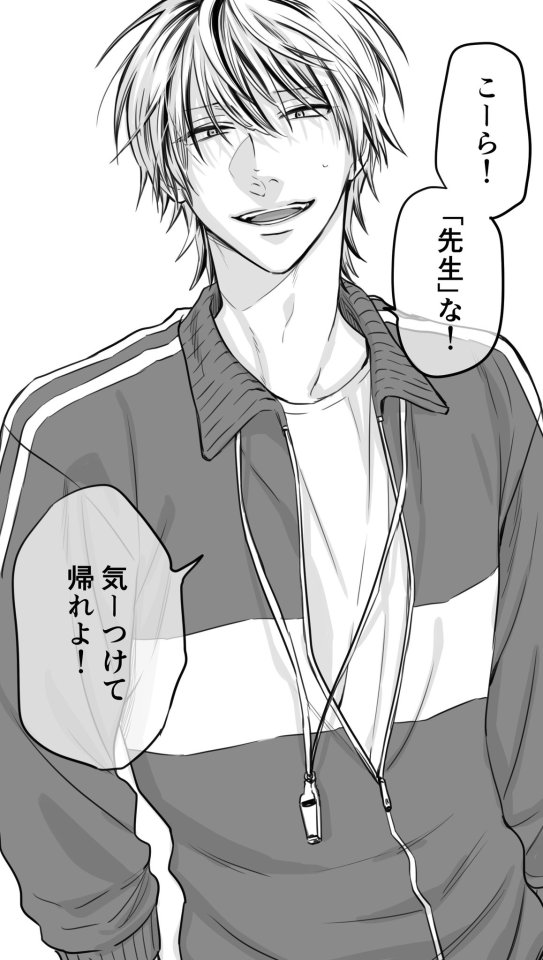

What subjects will they teach?
#I'd say Uramichi: definitely your school counselor!#Iketeru: Japanese or music teacher#Usahara: PE teacher (judging by his outfit)#Kumatani: Physics or Math teacher#kumatani's way of thinking and personality gives vibe that he'd be good at science#life lessons with uramichi#uramichi oniisan#manga#gaku kuze#official art#uramichi omota#daga iketeru#kumatani mitsuo#usahara tobikichi
205 notes
·
View notes